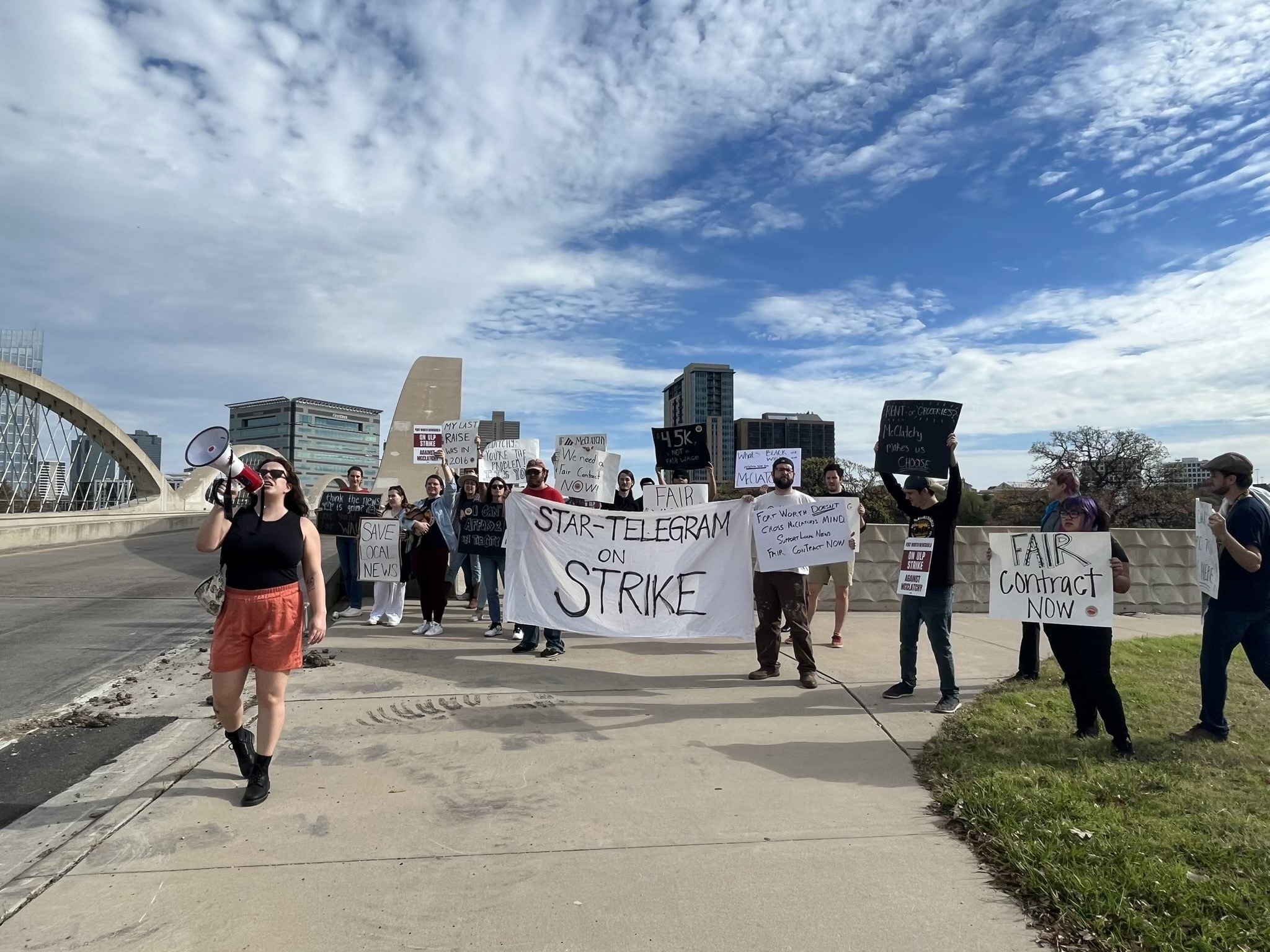After going on strike Nov. 28, reporters and photographers at the Fort Worth Star-Telegram could be closing in on their first union contract. Staff at the newspaper formed a union two years ago and have been bargaining over contract language with its parent company, McClatchy, ever since.
The Star-Telegram was one of three Texas newspapers that formed unions in 2020; the Dallas Morning News and the Austin American-Statesman both went public with their intent to unionize around the same time.
Kaley Johnson, who covers criminal and social justice at the Star-Telegram and is the chair of the Fort Worth NewsGuild, said the paper has continued to publish during the strike, mostly by pulling regional content from other newspapers owned by McClatchy. However, she said there has been a lack of Fort Worth content with local workers on strike.

Reporter and union chair Kaley Johnson speaks on a bullhorn at the Fort Worth Star-Telegram picket. Reporters and photographers are asking the paper’s parent company, McClatchy, for better wages. Fort Worth NewsGuild
“We are not back to work yet. We have had three bargaining sessions with the company during our strike, which at first during our first week they refused to meet with us,” she said. “There has been no sense of urgency from the company on ending the strike. So we have had to push really hard for the company to even meet with us and negotiate.”
Johnson said that the company proposed a contract package at a Monday bargaining session that union members are considering Tuesday; if the package is accepted, the staff will return to work.
During the strike, Star-Telegram staff have been going without pay — and without health insurance, a benefit the company announced it would be taking away from striking workers the first day of the union action. McClatchy has also posted jobs for part-time employees, though the company is prohibited from hiring new full-time staff to replace workers on strike.
“They also changed our email signatures. We had our email signatures set to inform readers, or people trying to get in touch with us, about what was going on and how they could contact us,” Johnson said. “Management went in and manually changed those to take out any mention of the strike, which is pretty untransparent for a media company.”
A message for @mcclatchy: The people united will never be divided 🗣️ pic.twitter.com/WtjHja5ixg
— Fort Worth NewsGuild ☀️ (@FortWorthGuild) December 5, 2022
Johnson said the key issue at the center of negotiations is wages. The Fort Worth Star-Telegram has seen turnover among younger reporters who can’t afford to stay in their jobs and among older reporters who can’t afford to retire, Johnson said. The union did not see much movement in negotiations over wages until workers went on strike, Johnson said.
“We know that the newsroom, as many newsrooms across the country, have suffered for decades from resources being leached away, from people leaving the industry for many different reasons. So we know that McClatchy can’t be blamed for all of those, but McClatchy certainly has not helped,” she said. “We formed this union with the intention of trying to preserve what is left of the Star-Telegram so it can continue its legacy. McClatchy seems utterly uninterested in doing that. McClatchy will come on calls and company managers will talk about how they’re making more revenues … and we’re not seeing that trickle down to any of us.”














